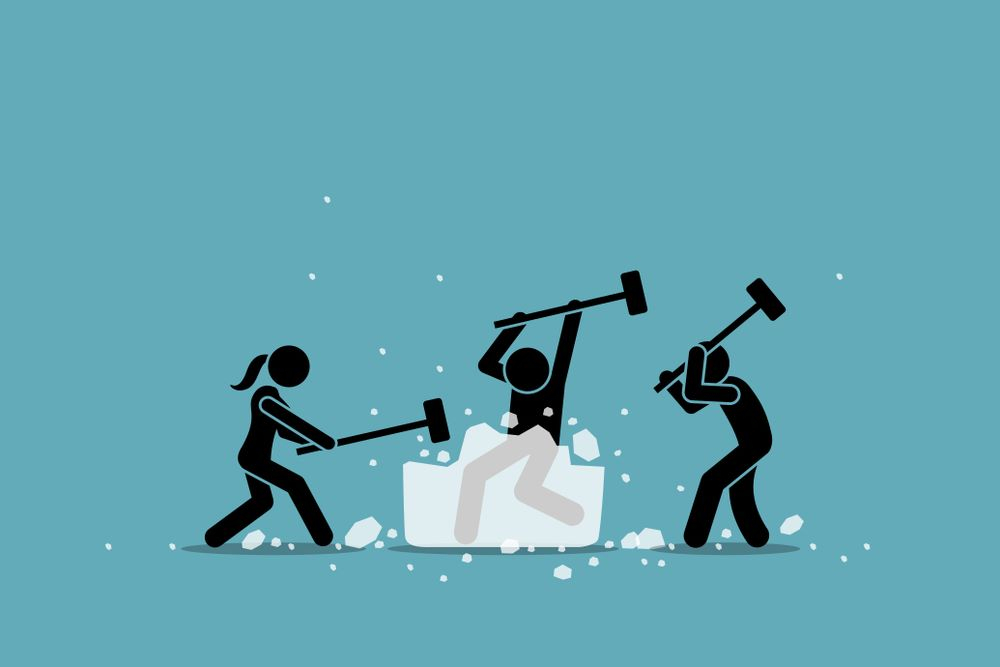Icebreaker – Break the Silence!
Article authored by: Name: Taposh Bhattacharya
Designation: Principal
Swami Vivekanand Public School, The Best CBSE School in Yamunanagar
‘Tell me and I forget. Teach me and I remember. Involve me and I learn.’ – Benjamin Franklin
What is an ‘Icebreaker’?
For Classroom
Students might sometime show ‘academic burnout’ which can be attributed to negative emotions, physical and mental response to continuous studies. This might result in enervation, frustration, demotivation and lack of ability at school. It is essential for teachers to ease the classroom atmosphere and maintain the interest for the students to grab what is to be taught.
Icebreakers warm up the conversation among the students. It can help in improving the efficiency of teaching by strengthening bonds between participants and reducing tension and fostering a positive classroom environment.
Icebreakers may also be used as a means to revisit the content from the previous lesson or as a step – in to introduce a new topic. Icebreakers should be fun as they aim at making students feel at ease and be prepared for the lesson.
For example, students might be less uncomfortable or conscious about their mistakes if they feel secure and trusting of their environment. They become inclined towards helping their peers, giving them feedback and learning collaboratively. Collaborative work and interaction, is the key for learners to achieve better results when learning a language and icebreakers can definitely be helpful to promote collaboration in a classroom.
Before jumping straight into a new chapter, many a times it is helpful to first revise what was taught in the previous chapter. The advantage of revising content during the icebreaker is to target two birds with one stone: you warm students up and prime them for learning while consolidating their knowledge. Also, an absentee will learn what was taught previously.
Few more examples of icebreakers are – Imaginative questions may be given to students before starting a new session, like if you are sitting under a tree, what will you converse with that tree? This will be a short relaxing time after a subject break and will improve the imagination of students and inculcate the love for the tree. Puzzles, riddles, fun games and group activities may be the part of icebreakers.
Icebreaker for Parents & Kids: It is advised that parents engage in playing easy ice breaking games and indulging in similar activities at home with their kids to bond better and have more personal conversations and interactions with them. Now-a-days, students are much more absorbed in their studies, coaching, video games, cartoon movies, with friends and what not and therefore arenot emotionally bonded with the family to some extent. During an icebreaker session, games promote group participation and allow families a chance to get to know each other better and build a better bond of understanding, cooperation and mutual respect. Choose from a myriad of parent-child icebreaker games including: Framing of questions based on their taste, likes, dislikes, expectations from each other. Fun games must not be individualistic but always in a group, so children, teens, young adults and parents can all enjoy in a group and lessen the emotional disconnect.
Icebreaker for individuals in a society – Whether in a classroom , family or in a society, we stay with a group of different intelligence, emotions and understandings. An icebreaker session is nothing but means of taking a pause from our routine and giving an opportunity to another individual to participate and contribute.’
So, during an icebreaker every individual of a society is given an opportunity to participate in social activities and celebrations. Consequently, it is a collective effort towards the betterment of the society.
In a nutshell, an icebreaker means nothing but dedicating a relaxing moment from our routine life to learn in a group for our betterment and adapting easily when faced with challenges.
‘Collaboration allows us to know more than we are capable of knowing ourselves.’ – Paul Solarz



